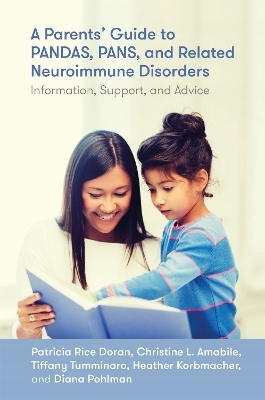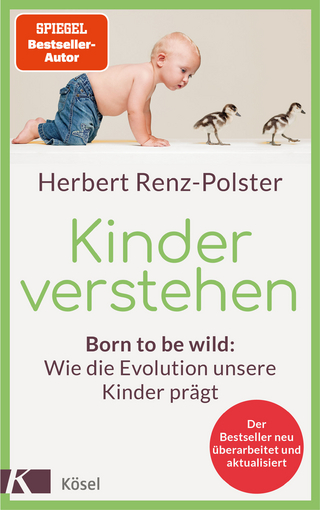
A Parents' Guide to PANDAS, PANS, and Related Neuroimmune Disorders
Jessica Kingsley Publishers (Verlag)
978-1-78592-768-3 (ISBN)
Having a child who suddenly develops PANDAS (Pediatric Autoimmune Neuropsychiatric Disorders Associated with Strep), PANS (Pediatric Acute-onset Neuropsychiatric Syndrome) or related conditions such as encephalitis can be a daunting challenge for parents. This clear guide explains the symptoms and diagnosis of PANDAS and PANS, with treatment options and recommended strategies for supporting children at home, at school, and in community settings.
The book covers key symptoms including OCD, tics, anxiety, sensory issues and personality changes, with practical advice on medical management, nutrition, lifestyle, and addressing social and behavioural needs. Each chapter also includes handy sidebars with key information to remember, and action steps for overcoming challenges, managing relapse, family self-care and providing children with the best possible support.
Patricia Rice Doran is Assistant Professor of Special Education at Towson University, Maryland. Christine L. Amabile is a Licensed Clinical Social Worker, currently working full time in the school system and part time as a private practice outpatient therapist. Wendy Nawara is a social worker and founder of PANDAS/PANS Advocacy and Support, a family support non-profit. She lives in Illinois. Diana Pohlman is founder and Chairman of the Board of PANDAS Network, the primary research non-profit in the USA. She lives in California. Tiffany Tumminaro has been practicing as a social worker since 2004, and is an active member of the PANDAS/PANS Advisory Board through the Illinois Department of Public Health.
Introduction. Part One: The Physical Realities of PANDAS, PANS and Related Conditions. 1. Your child has PANDAS or PANS - Now what? 2. What's happening in your child's brain: Medical Context of PANDAS/PANS. 3. Complex cases and comorbid conditions. 4. Common treatments and therapies for PANDAS/PANS. 5. Challenges in finding treatment for PANDAS/PANS. 6. Ensuring physical wellbeing: Nutrition and lifestyle support for PANDAS/PANS. 7. Managing relapse. Part Two: Living Well with PANDAS and PANS Symptoms. 8. Supporting mental well-being: Emotional and behavioral impact of PANDAS/PANS. 9. Managing Obsessive Compulsive Disorder (OCD) on a daily basis. 10. Managing separation and generalized anxiety. 11. Routines, supports and social skills. 12. Family self-care: Post-traumatic stress and support systems. Part Three: Planning, Advocacy and Communication. 13. Communicating and advocating effectively on behalf of your child. 14. Developing a strong educational plan for your child. 15. School supports, accommodations and adaptations. 16. Transitions, adolescence and adulthood with PANDAS/PANS. 17. Conclusion.
| Erscheinungsdatum | 25.09.2018 |
|---|---|
| Verlagsort | London |
| Sprache | englisch |
| Maße | 154 x 229 mm |
| Gewicht | 260 g |
| Themenwelt | Sachbuch/Ratgeber ► Gesundheit / Leben / Psychologie ► Familie / Erziehung |
| Sachbuch/Ratgeber ► Gesundheit / Leben / Psychologie ► Lebenshilfe / Lebensführung | |
| Medizin / Pharmazie ► Medizinische Fachgebiete ► Pädiatrie | |
| ISBN-10 | 1-78592-768-X / 178592768X |
| ISBN-13 | 978-1-78592-768-3 / 9781785927683 |
| Zustand | Neuware |
| Haben Sie eine Frage zum Produkt? |
aus dem Bereich


